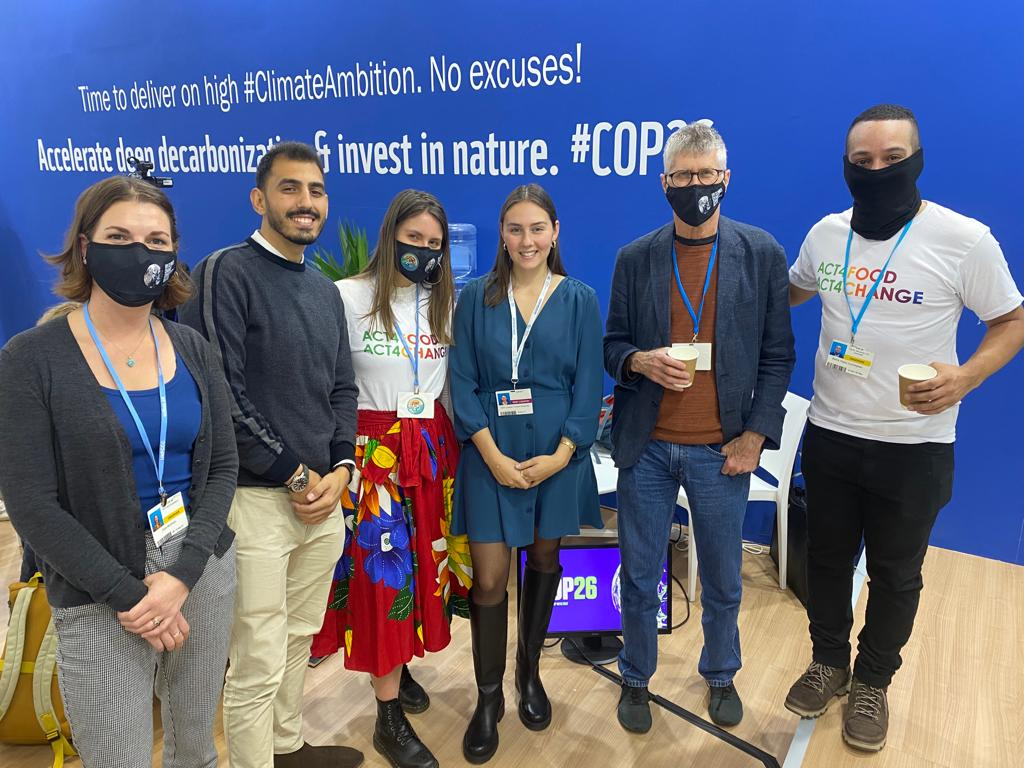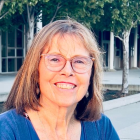Support strong Canadian climate journalism for 2025
These in-their-own-words pieces are told to Patricia Lane and co-edited with input from the interviewee for the purpose of brevity.
Dara Karakolis is organizing to end hunger.
This 25-year-old and her young colleagues at Act4Food Act4Change have organized more than 160,000 people from over 100 countries to call on decision-makers to change our food systems so people are put first.

Tell us about your project.
Inspired by a Bangladeshi school’s success in their Eat Well Live Well campaign, which gathered a million signatures in a push for healthy lunches in schools, Sophie Healy-Thow and Maureen Muketha founded Act4Food Act4Change to take this idea global and expand its reach to healthy and sustainable food for all.
Using both direct community engagement and social media, our 30 youth leaders from 26 countries and our 360 young advocates from over 100 countries have obtained 163,000 pledges to act to change food systems. Since each country and each person has different needs and different ideas, we do not tell people what to do. We ask them to pledge to act in a way that makes sense to them.
What kinds of advice do you give people who want to change their food systems?
In democracies, we all have two powers — our wallets and our ballots. We can choose what we buy and we can choose how we vote. Consumers acting together can and do affect corporate behaviour, and if we make food security an election issue, politicians will pay attention.
The next phase of our work is to support youth-led projects for change. In Canada, we will bring local farmers, communities and decision-makers already passionate about food security to help them with their own work, avoid duplication and to campaign for a national healthy and sustainable school meals program. Canada is the only G7 country without either a national program or national standards. The time is ripe for Canada to catch up.
At the international level, by supporting campaigns like Food@COP, we helped make global leaders more aware of the importance of food in the climate crisis. And this year, there will be multiple food-related spaces or events at COP27. I am attending to advance this even further. In other international work, we encourage agribusinesses to provide data to support claims outlined in their sustainability reporting.

Tell us about your background.
My Greek and Italian immigrant family was always in the garden and we ate what they grew. This gave me a deep connection to food. As a competitive athlete, I understood what I ate had a great deal to do with my performance. I graduated with a degree in nutritional sciences, but as I became more aware of the climate crisis and the role that food production plays in increasing greenhouse gas emissions and inequity, I realized I wanted to work at a systems level.
I completed my master's in public health in France, where I also had the opportunity to be in leadership at Act4Food Act4Change. Now I want to organize for change at home.
What makes your work hard?
Our food and energy systems are so complex. It is hard to isolate one problem and work on it knowing that so much else will also have to change. It is also difficult to give a platform to the people who most need to have a voice to speak up.
What worries you?
A report from the Intergovernmental Panel on Climate Change says that climate change will make up to 10 per cent of our food production areas unsuitable for use by 2050. That is so many more hungry people. We can feed everyone if we change to more sustainable food production and distribution. It is sometimes hard to believe decision-makers don’t understand the gravity and urgency.
What do you see if we get this right?
Millions of people are needlessly hungry. There is enough for all of us to eat well. I see a future where many more people have the joy and connection to the Earth that comes from growing their own food.

Do you have any advice for other young people?
Everyone has a skill or a talent. You might be a poet or an artist or interested in science or writing or children or even food. Figure out something you are good at and what you care about and start asking your friends, your parents, social media where you might be useful. It will make you feel better and it will help the world.
What would you like to say to older readers?
We need you to make yourselves available for us to learn from and grow with. You have a voice, a vote and a wallet, which, perhaps, you are more used to using than the young people around you. Lead by example. You won't live through the worst of what is coming, but we will and we need you engaged to help us figure out how to lessen the impacts and make the most of the opportunities.







Comments
Food is going to be key. And if you aren't supporting a local farmer, or buying some of your produce locally, you're part of the problem. It's an easy fix now, with farmer's markets and organizations where you can buy direct.
And for the love of life, stop buying those comfort coop eggs because they're cheaper than free range. Learn the difference between free range and free run.......chickens do poorly on cement....their feet weren't made for that.
Growing some of your own food is also easier than we think....and what grows is more nutritional because it doesn't travel.
But most importantly......support local growers, pay that premium difference between their food and Safeways. Otherwise, when supplies really collapse, we'll have no one but foreign agri- business producers to rely on when food insecurity hits....and they buy up Canadian land quite often for consumption in their home country.......global export economies being what they are.